Introduction
Why Are Ferrets So Hyper: Ferrets, those charming and mischievous members of the Mustelidae family, have captured the hearts of animal enthusiasts worldwide with their boundless energy and playful antics. It’s not uncommon to witness a ferret darting around the room with lightning speed, performing acrobatic feats, or engaging in what seems like an endless game of hide-and-seek. First and foremost, ferrets are domesticated descendants of the European polecat, a carnivorous mammal known for its agility and hunting prowess. While selective breeding has altered their size and temperament, the fundamental characteristics of their wild ancestors remain embedded in their DNA. This ancestral connection contributes to their inherently active nature.
Ferrets possess a highly developed cardiovascular system, allowing them to sustain rapid bursts of energy and quick movements, similar to their predatory counterparts in the wild. Ferrets winter are naturally inquisitive and curious animals. Their keen sense of smell and insatiable curiosity drive them to every nook and cranny of their surroundings. This curiosity, coupled with their boundless energy, leads to their hyperactive behavior as they investigate and interact with their environment. Ferrets thrive on mental stimulation and are quick to become bored when not engaged in stimulating activities.
Ferrets are highly social creatures. They live in colonies and engage in various forms of play and interaction with their fellow ferrets. In a domestic setting, this social nature extends to their human companions. They crave attention, affection, and playtime with their owners. When they lack the companionship and interaction they need, they may resort to hyperactive behavior as a way to express their pent-up energy and desire for engagement. Ferrets may indeed be hyper by nature, with the right care and attention, their exuberance can be a delightful and endearing aspect of sharing our lives with these unique and spirited animals.
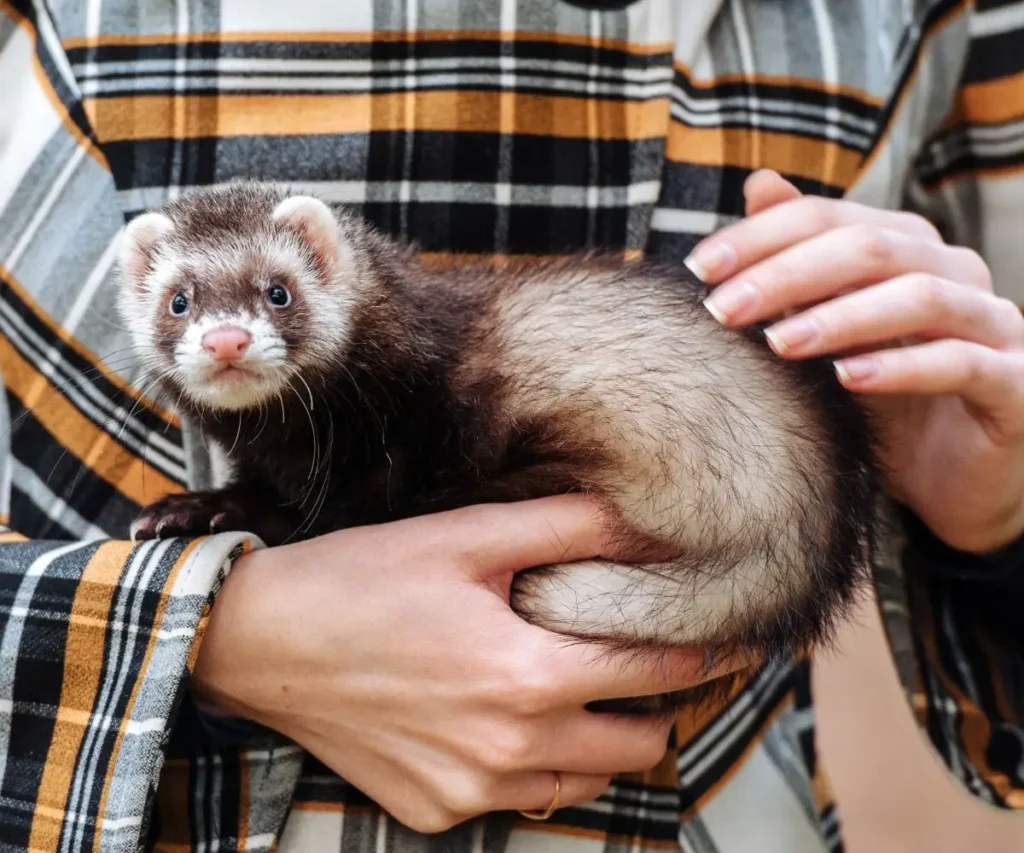
Do ferrets ever calm down?
Unlike younger ferrets, adults will be able to play and calm down more easily without getting overstimulated. Once ferrets are around 2 years old or older, they make the perfect playmates for younger ferrets by educating them on the proper way to act and keeping them in check.
Ferrets, like many animals, go through different life stages. As kits (baby ferrets), they are incredibly active and curious, often resembling tiny bundles of boundless energy. As they grow and mature, typically around 6 to 12 months of age, many ferrets do experience a reduction in their hyperactivity levels. They may become more settled and less prone to constant zooming around.
Just as with people, ferrets have unique personalities. Some individuals may naturally be more high-strung and active throughout their lives, while others may naturally mellow as they age. Genetics play a role in determining a ferret’s disposition, and some ferrets may retain their playful nature well into adulthood.
Many ferret owners choose to have their pets neutered or spayed, which can influence their behavior. This procedure can lead to a decrease in hormonal-driven behaviors and may contribute to a more even-tempered ferret.
The level of socialization and interaction a ferret receives can also impact its behavior. Ferrets are highly social animals and thrive on companionship and mental stimulation. Regular playtime and interaction with their owners can help channel their energy and keep them mentally engaged, leading to a more content and less hyperactive ferret.
Why do ferrets get overexcited?
“This is a direct result of an animal having so much joy and energy that it cannot be contained,” Faulkner said. “And they don’t know exactly what to do with themselves, and this is how it comes out.” The very hyper movement is often accompanied by vocalizations that sound a lot like a human laugh.
Ferrets are natural-born hunters and possess a strong instinct to play and explore. In the wild, they stalk and pounce on prey, engaging in games that mimic hunting behavior. This instinctual drive to play remains ingrained in domestic ferrets, leading them to become easily excited during playtime or when exploring their surroundings.
Ferrets have high metabolic rates, which means they burn energy quickly. This abundance of energy can make them prone to overexcitement, as they attempt to expend it through vigorous play, running, and frolicking. Young ferrets, in particular, are known for their seemingly endless reserves of energy.
Ferrets are highly social animals that thrive on interaction with other ferrets and their human caregivers. When they are happy and engaged in social activities, they can become overexcited, expressing their joy through energetic play and antics.
Ferrets are naturally curious and seek out novel experiences. New toys, environments, or changes in their daily routine can trigger excitement. They may become overstimulated when encountering something unfamiliar, leading to bursts of energy and hyperactive behavior.
How do you calm down a hyper ferret?
If your ferret struggles while holding it, it is possible to calm them down by gently swaying them backwards and forwards, this relaxes them and they seem to enjoy it. Do this by grasping them gently, but firmly around the shoulders as described above.
One of the most effective ways to manage a hyperactive ferret is to provide ample opportunities for play and exercise. Dedicate daily play sessions, during which you engage them in interactive games like chasing toys, hide-and-seek, or even supervised exploration in a ferret-proofed area. These activities help them burn off excess energy and reduce their hyperactivity.
Ferrets love toys that mimic prey animals or encourage them to explore. Toys like feather wands, tunnels, and puzzle feeders can keep them mentally and physically stimulated, diverting their energy into play rather than hyperactivity.
Ferrets are highly social animals that thrive on companionship. If you have a single ferret, consider adopting a second one to provide a playmate. If that’s not possible, spend quality time interacting with your ferret through cuddling, gentle petting, and talking to them. Positive social interactions can help reduce their hyperactivity.
Ferret-proofing your home is essential to prevent accidents and to allow your ferret to explore safely. Block off dangerous areas, secure cabinets and drawers, and remove potential hazards. Ferret can roam freely without getting into trouble, they may feel less inclined to act hyperactively.
Why are ferrets so playful?
Ferrets are curious, often very mischievous, and naturally inquisitive with a taste for adventure. They each have distinctively individual personalities. They have a short attention span and are constantly seeking new and more exciting things to explore and experience.
Ferrets are natural hunters, and their playfulness often mimics predatory behavior. In the wild, they would stalk, pounce, and chase after small prey animals like rodents and birds. This instinctual drive to play and practice their hunting skills remains intact in domesticated ferrets. Their playful behavior is a way of honing their predatory instincts, even when their “prey” is a feather toy or a stuffed animal.
Ferrets possess remarkably high metabolic rates, which means they have abundant energy to burn. They are crepuscular animals, most active during dawn and dusk, and this natural activity pattern often results in bursts of playfulness during these times. Young ferrets, in particular, have seemingly boundless energy, and their playful nature reflects their vitality.
Ferrets are incredibly curious creatures. Their keen senses of smell and touch drive them to investigate and explore every nook and cranny of their environment. Their playful demeanor emerges as they interact with new objects, textures, and smells. Even something as simple as a cardboard box can become a source of endless amusement for a ferret.
Ferrets are highly social animals that thrive on interaction, both with their fellow ferrets and with their human caregivers. Play is a crucial aspect of their social interactions. They engage in playful wrestling, chasing, and mock-fighting with each other, fostering bonds within their group. Similarly, they seek playtime with their human companions as a form of social connection and stimulation.
Is ferret hissing bad?
Hissing could mean your ferret is angry or frightened and you should leave him along to calm down, or if playing with other ferrets, hissing can be a means of communication. Your ferret’s body language will usually give your ferret’s mood away!
Hissing is a form of communication for ferrets. It can be used to express various emotions, including fear, discomfort, or aggression. Ferrets may hiss to establish boundaries, warn of potential threats, or convey their discomfort with a situation.
When ferrets feel threatened or stressed, they may resort to hissing as a defensive mechanism. New environments, unfamiliar people or animals, or sudden changes in their surroundings can trigger fear or stress-related hissing.
In some cases, hissing can be a sign of aggression. This may occur during territorial disputes with other ferrets, especially if they are not properly introduced or are vying for resources like food or bedding.
A ferret that is unwell or experiencing pain may hiss as a response to discomfort. If your ferret suddenly starts hissing and displays other unusual behaviors, it could be a sign of an underlying health issue that requires veterinary attention.
How cuddly are ferrets?
Ferrets may be tiny, but they pack big personalities into small packages. These guys can be extremely loving and cuddly with their humans. Of course, it takes time to form that special friendship.
Ferrets, like all animals, have distinct personalities. Some ferrets are naturally more affectionate and enjoy cuddling with their human companions, while others may be more independent and less interested in physical affection. This variation is essential to keep in mind when getting to know your ferret’s cuddling preferences.
Ferrets are inherently social animals. They live in colonies and often sleep and play huddled together. This social nature can translate into affectionate behavior towards their human caregivers. Many ferrets enjoy being close to their owners, cuddling, and seeking attention.
Building a strong bond with your ferret can enhance their cuddly behavior. Spending quality time with your ferret, playing, grooming, and talking to them can help foster a closer connection, making them more inclined to cuddle with you.
The age and temperament of a ferret can influence their cuddling behavior. Baby ferrets (kits) are often more active and less interested in extended cuddling sessions. As they mature, many ferrets become more relaxed and cuddly. Additionally, neutered or spayed ferrets may exhibit calmer and more affectionate behavior.
Do ferrets bites hurt?
It’s worth noting that the ferret’s skin is thicker and tougher than human skin, so when ferrets nip at each other in play, they don’t inflict any real pain. But when they nip at a human, it can hurt.
Ferrets, like any animals, have varying personalities. Some ferrets are naturally more gentle and less prone to biting, while others may be more excitable or feisty. A ferret’s individual temperament can significantly influence the severity of its bites.
Ferrets often use their mouths to explore their environment, interact with objects, and engage in play. When ferrets bite during play, they usually do so with moderate pressure and no intent to harm. In such cases, their bites are more likely to be uncomfortable than painful.
Ferrets may bite when they feel threatened, fearful, or cornered. In situations where a ferret perceives a threat, their bites can be more forceful and may cause discomfort or pain.
Young ferrets (kits) may be more prone to nipping or biting as they world and establish boundaries. Proper training and socialization from a young age can help reduce the likelihood of aggressive biting behavior.
Why do ferrets lick you then bite?
Couple of reasons. warning before a potential bite. My little girl will sit ocan’t voice to us how they feel, so they lick hoping we’ll get the message and remove them from the situation. They are laying claim to or letting you know they are protecting you.
Ferrets are natural groomers, and they often use their mouths to clean themselves and other ferrets. When a ferret licks you, they might be attempting to groom you as they would another ferret. This behavior can be a sign of affection and social bonding. Ferrets groom each other to strengthen their social bonds within their group.
Licking can also serve as a form of communication for ferrets. It’s a way for them to express their feelings, such as affection or comfort. When they lick you, they may be conveying a positive and friendly message.
Sometimes, ferrets incorporate licking into their playtime. It can be part of their interactive and social play behavior. Ferrets are known for their playful antics, and licking followed by nibbling can be a playful gesture, akin to how they might interact with another ferret during play.
Young ferrets, especially kits, might explore their environment by licking and nibbling objects, including people. Their curiosity can lead them to investigate textures and tastes. Teething can also prompt them to chew and nibble to alleviate discomfort.
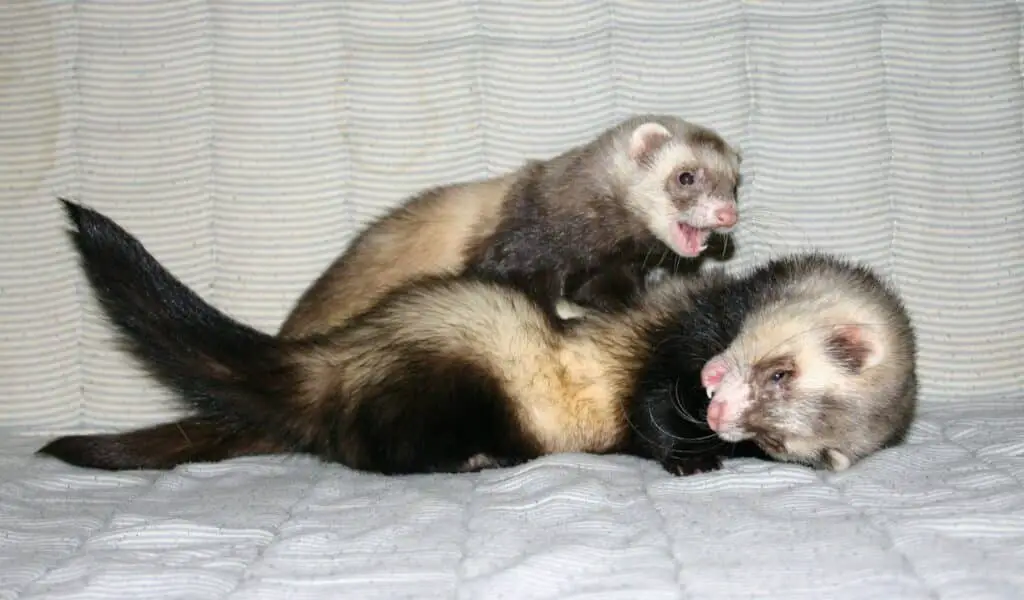
Conclusion
Ferrets’ hyperactivity is further fueled by their insatiable curiosity and inquisitive nature. Their heightened senses of smell and touch drive them to interact with their surroundings continually. This desire for mental stimulation leads to their playful and hyperactive behavior as they investigate every corner of their environment. Another crucial aspect contributing to a ferret’s hyperactivity is their social nature. In the wild, ferrets live in colonies, and their domesticated counterparts still crave social interaction, not only with their fellow ferrets but also with their human caregivers.
When deprived of companionship and mental stimulation, ferret behaviors may resort to hyperactive behavior as a means of expressing their pent-up energy and need for engagement. Understanding the factors behind a ferret’s hyperactivity is vital for responsible pet ownership. Providing them with a stimulating environment, regular exercise, interactive play, and ample social interaction is essential for channeling their energy in a positive direction. Neglecting these needs can lead to behavioral issues and, ultimately, a less fulfilling experience for both the ferret and their owner.
Ferrets are lively and spirited animals that bring joy and entertainment to their human companions. Their hyperactivity is a unique and endearing trait that sets them apart in the world of pets. By embracing and catering to their energetic nature, we can ensure that ferrets lead happy, healthy lives while enjoying their company to the fullest. So, while it may be true that ferrets are naturally hyper, with the right care, attention, and love, they become cherished members of the family, adding a delightful dose of energy and enthusiasm to our lives.

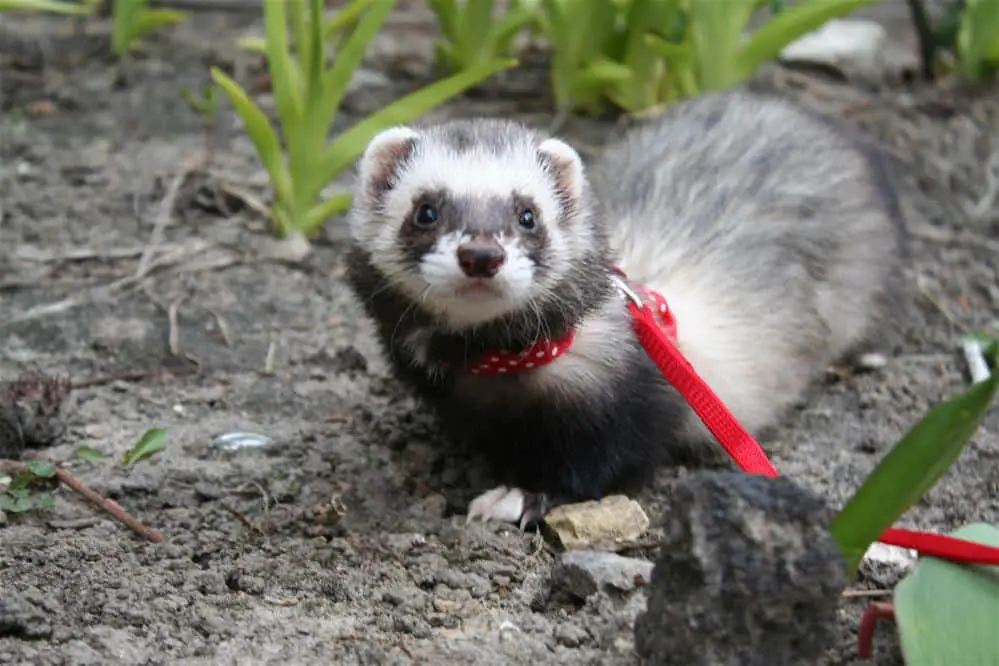
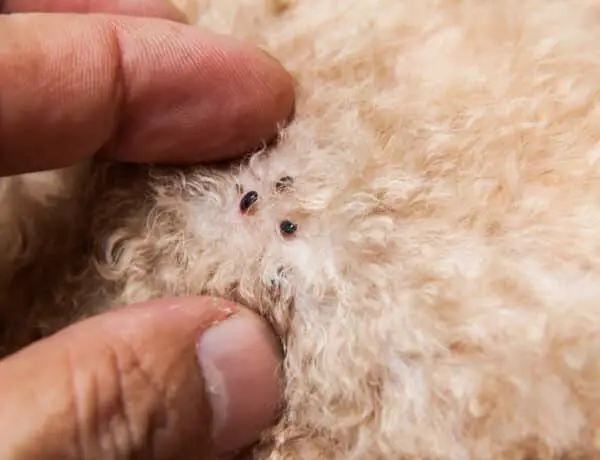

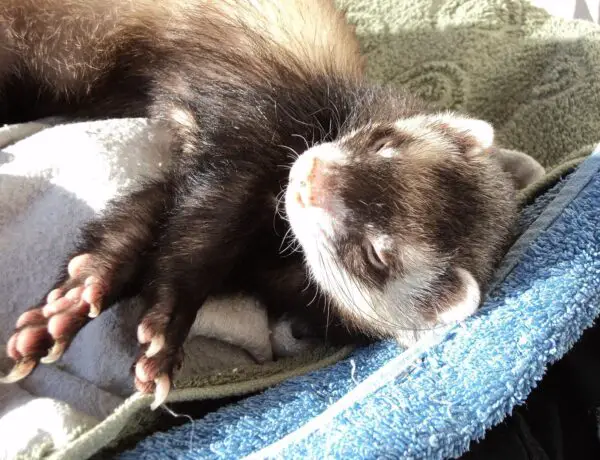
No Comments